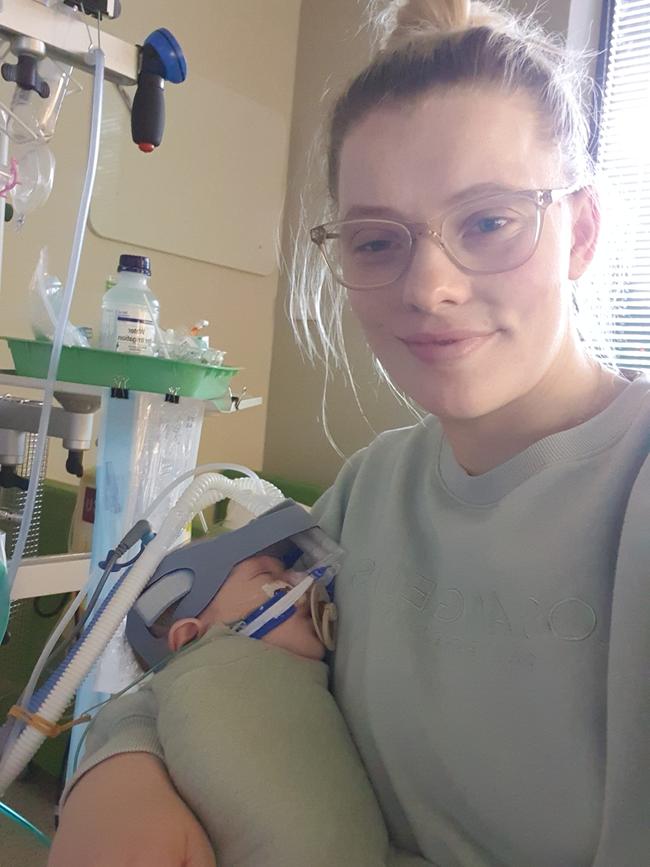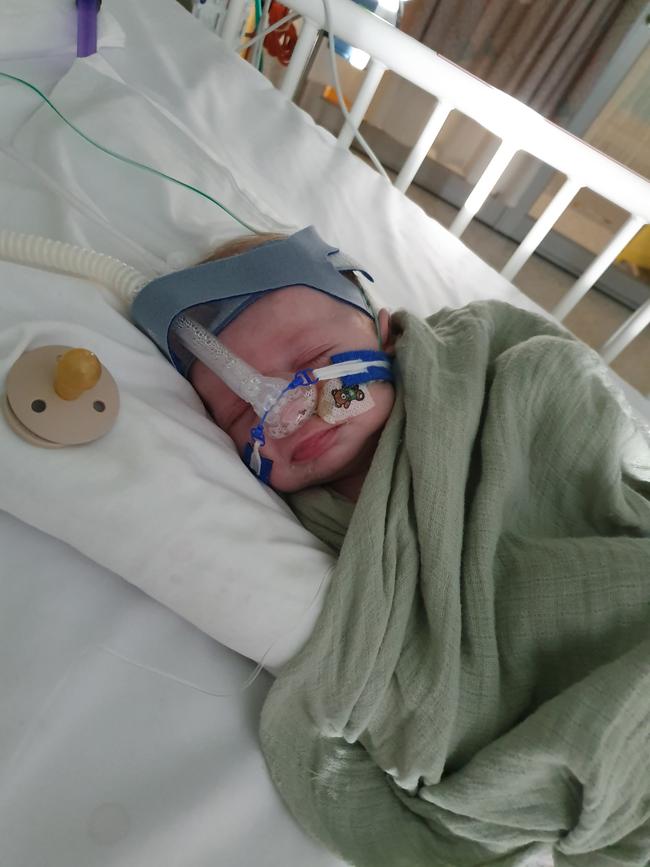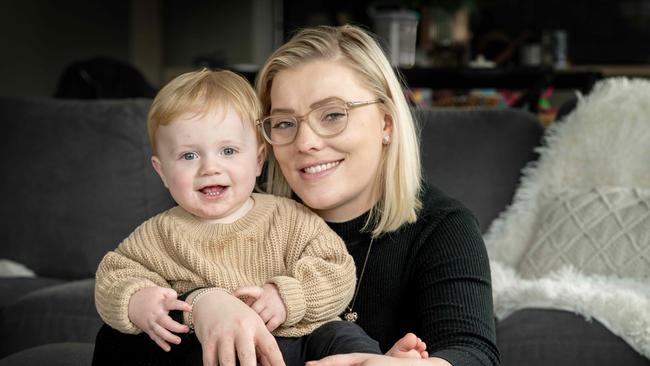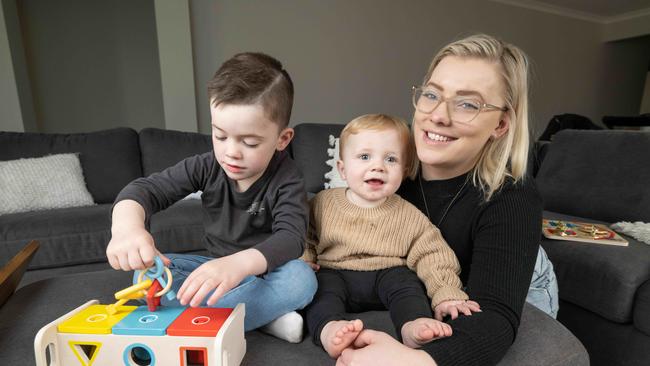RSV vaccine breakthrough to keep 12,000 kids out of hospital
It starts out like the common cold but it's the number one reason babies end up in hospital and a new vaccine is on the way.
National
Don't miss out on the headlines from National. Followed categories will be added to My News.
Exclusive: A treatment that could stop the hospitalisation of 12,000 young children with a common cold-like illness each year could soon be available in Australia.
The vaccine-style treatment prevents Respiratory Syncytial Virus (RSV), the number one cause of hospitalisation for children aged under five.
The virus, which causes pneumonia and bronchiolitis, has killed more than 21 preschoolers in Australia in the last decade — and costs our health system $159 million annually.
So far this year there have been over 26,000 cases recorded around Australia.
The Therapeutic Goods Administration (TGA) is assessing the new preventive treatment for the condition, developed by pharmaceutical companies Sanofi and AstraZeneca.
Their drug nirsevimab can be given to babies at birth and, in a trial of 8000 children with RSV in Europe, it slashed hospitalisation rates by 83 per cent.
The European Union, the United Kingdom and Canada have all already approved the jab for use.
“Our aim is to secure a recommendation and listing (subsidy) for nirsevimab so all children born in Australia have equitable and affordable access to protection from RSV,” a spokesperson for Sanofi said.
To speed up access to the infant vaccine in Australia, experts are calling on state governments to consider funding it.


A new report by Evohealth found 12,000 babies aged under 12 months are hospitalised in Australia with RSV each year.
Up to one in four of these children will spend time in ICU as a result of the infection.
And University of NSW respiratory scientist Dr Nusrat Homaira said 10 per cent of babies hospitalised with RSV in the first two years of their life go on to develop asthma.
Founder of the Immunisation Foundation of Australia Catherine Hughes, who this week launches an RSV and Me awareness campaign, saw her baby daughter Lucy was hospitalised with the virus just 18 months after her newborn son Riley lost his life to whooping cough.
“I won’t lie. We were consumed by thoughts of Riley and a foreboding sense of ‘not again’,” she said.
Fortunately Lucy recovered.

Rachel Eyles’s one-year-old baby Levi has already had been hospitalised twice with the infection.
He was six weeks old when he first caught RSV, showing signs of respiratory distress as his chest and neck pulled in, his head bobbed and he displayed overall fatigue.

Ms Eyles raced him to hospital in the middle of the night where he stopped breathing twice.
“I’ll just never forget standing in the corner of the room and them working on (rescusitating) my tiny six week old baby to bring him back and his eyes were just bolting out of his head pretty much. He was turning grey,” Ms Eyles said.
“He was asking for help and I couldn’t do anything.”
Six months later he was hospitalised with a second RSV infection.
While out of the woods now, Levi still suffers respiratory issues, has been diagnosed with asthma and “always sounds like a purring cat.”
“Don’t be afraid to go to the hospital if you do think that your child is having respiratory issues, trust your gut,” Ms Eyles said.
WHEN TO GO TO HOSPITAL
In most cases RSV is mild, with symptoms similar to a cold. But some children develop severe RSV and require medical attention for lung infections such as bronchiolitis and pneumonia.
The signs of severe RSV in young children include:
*Difficulty breathing
*Not eating or drinking
*Exhaustion
*And a fever
Also be alert for:
*Short, shallow and rapid breathing, where the child’s chest caves in between and under the ribs or the lower neck
*Up and down head movements or grunting with each breath
*Flared nostrils and wheezing
*And in some cases even a blue tint on their lips, fingernails or around their eyes.
More Coverage
Originally published as RSV vaccine breakthrough to keep 12,000 kids out of hospital




